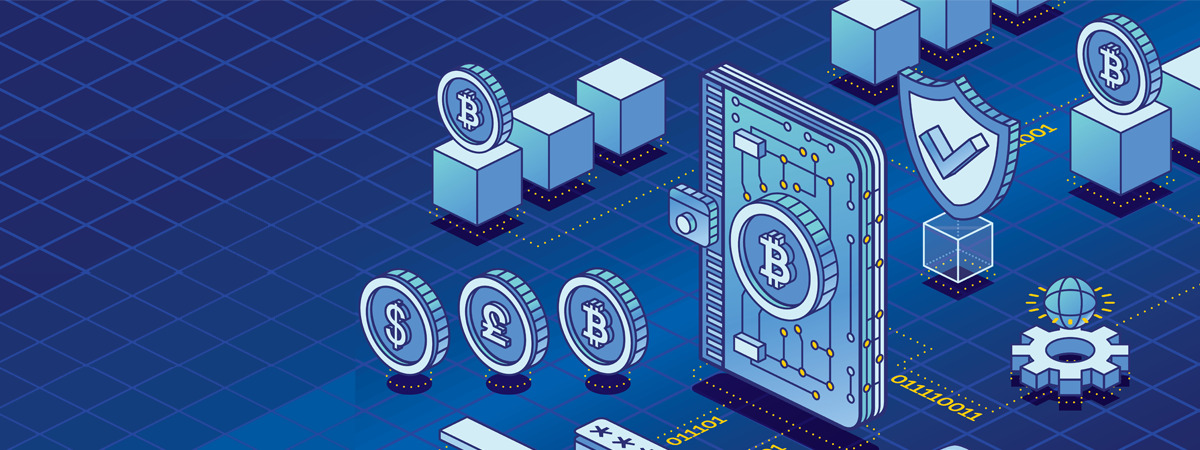Admis Asia: Insights into the Dynamic Asian Market
Exploring the latest trends and developments across Asia.
Blockchain and Chill: Why This Tech Isn't Just for Crypto
Discover how blockchain is transforming industries beyond crypto. Unlock its potential and see why it's the future of tech!
Exploring the Many Sectors Benefiting from Blockchain Technology
Blockchain technology has emerged as a transformative force across various sectors, enhancing transparency, security, and efficiency. The financial services industry, particularly, has seen a significant impact through the introduction of cryptocurrencies and smart contracts. According to Investopedia, blockchain facilitates faster and cheaper transactions, allowing for real-time settlements that diminish the need for intermediaries. Additionally, supply chain management stands to benefit greatly, as companies can leverage blockchain to obtain real-time tracking of goods, ensuring authenticity and reducing fraud. A report from IBM highlights how firms like Walmart are utilizing blockchain to track their food supply, resulting in enhanced safety and efficiency.
Beyond finance and supply chain management, the healthcare sector is also reaping the benefits of blockchain technology. By implementing secure and decentralized medical records, healthcare providers can ensure patient data integrity while streamlining accessibility among authorized users. A publication by HealthIT.gov discusses how blockchain can improve interoperability and aid in combating drug counterfeiting. Moreover, the voting process is undergoing a revolution thanks to blockchain. As cited by Forbes, some organizations are experimenting with blockchain-based solutions to promote transparency and trust in the electoral process, marking a significant shift in how democratic processes may be conducted in the future.

How Blockchain is Revolutionizing Supply Chain Management
The advent of blockchain technology has begun to transform various industries, and supply chain management is no exception. By providing a transparent, immutable ledger for transactions, blockchain enhances visibility and trust among all stakeholders. In traditional supply chains, information is often siloed, leading to inefficiencies and a lack of accountability. With blockchain, every transaction is recorded on a decentralized platform, ensuring that all parties—from manufacturers to retailers—have access to accurate and real-time data. This not only reduces the risk of fraud but also streamlines the entire supply chain process.
Moreover, the implementation of blockchain in supply chain management facilitates enhanced tracking of products as they move through the supply chain. For instance, using smart contracts, companies can automate and enforce compliance of terms, reducing delays and disputes. Enhanced tracking also enables companies to provide customers with detailed information about the origin and journey of their products, thereby improving consumer trust. As more organizations recognize the potential of blockchain, its application in supply chain management is likely to expand, driving greater innovations and efficiencies across the industry.
Is Blockchain the Future of Digital Identity?
The rapid evolution of technology has prompted a fundamental shift in how we perceive digital identity, paving the way for innovative solutions like blockchain. This technology offers a decentralized and secure way to manage personal data without relying on central authorities. By leveraging blockchain, individuals can have greater control over their digital identities, reducing risks related to identity theft and privacy breaches. According to a study by the World Economic Forum, integrating blockchain into identity systems could significantly streamline processes in various sectors, including banking, healthcare, and governance.
Moreover, the rise of digital identities on blockchain can enhance trust and transparency in online interactions. With blockchain's immutable ledger, any changes made to an individual's identity can be tracked and verified, creating a secure audit trail. This aspect is particularly beneficial in remote transactions and e-governance, where authentication is crucial. As the demand for secure and efficient digital identity solutions grows, many experts argue that blockchain may not just be a possibility but a necessity for the future of digital identity. For further insights, check out the Forbes article on blockchain and identity.